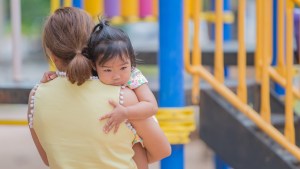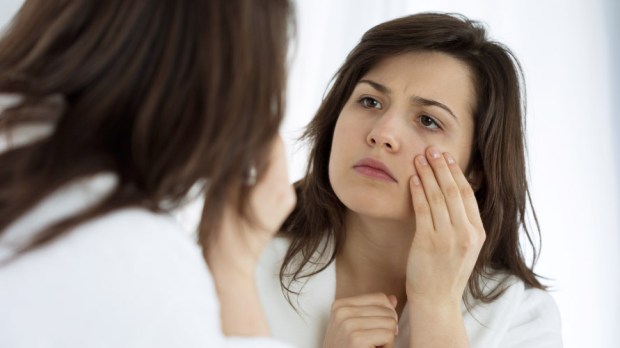Scientists now have a way of measuring your cellular age, and they were curious about whether having children ages you faster. One study done on almost 2,000 American woman has a pretty grim conclusion. Julie Hand explains:
Evidence of aging appears most measurably in telomeres, structures at the end of chromosomes that keep DNA from deteriorating (much like the plastic coating on the end of shoelaces). Each time cells replicate and divide, the telomeres shorten – literal evidence of aging. Over time, these protective caps wear down. Without telomeres, DNA strands become damaged and cells can’t do their job. This triggers the cells to die in a process called apoptosis, aka programmed cell death. After adjusting for factors like the women’s age, weight, and socioeconomic background, the researchers found that women with kids had telomeres 4.2 percent shorter than their child-free peers, or ’11 years of accelerated cellular aging,’ says Anna Pollack, lead author of the paper.
Still, the study authors suggest caution interpreting these findings. There’s still too many factors we haven’t accounted for. In fact, a separate study, which followed a totally different population of women — 75 Mayan women in a remote area near Guatemala — came to exactly the opposite conclusion. “After the 13 years had passed,” the Atlantic reports, and “once the researchers had controlled for telomere length at the beginning of the study, women who had more surviving offspring had longer telomeres than women who’d had fewer kids.”
So why the big difference?
The Mayan study says it probably comes down to support. When having children is “linked to an increase in social support for mothers,” such as good postpartum care and having other trusted family members and friends nearby helping with the children, the mother’s body doesn’t pay such a high “reproductive cost.” When she has help, she conserves more energy, energy which is then “available for tissue maintenance, resulting in a slower pace of cellular aging.”
In other words, we’re hearing what every mother already knows: Motherhood is easier on your mind, easier on your body, easier on your whole life, when the culture around you takes it seriously. When you have support and help, as well as a community that understands the tremendous value of what you’re doing, motherhood doesn’t take such a toll on your body.
These findings support a truth that mothers have always known: we thrive when society supports us. But mothers who are isolated and unsupported feel the effects right down to the cellular level. It’s one more reason for all of us to do our part to build a culture that supports mothers and families.

Read more:
4 Subtle ways to support the mothers in your life

Read more:
How stay-at-home mothers are saving the world

